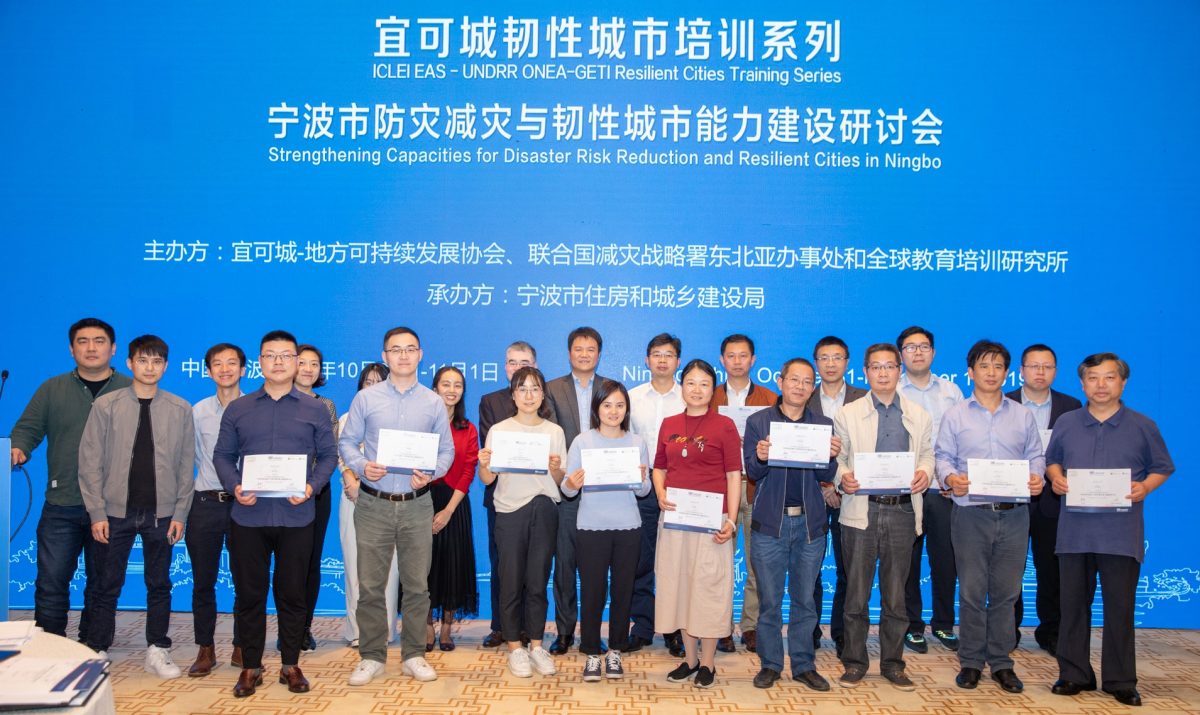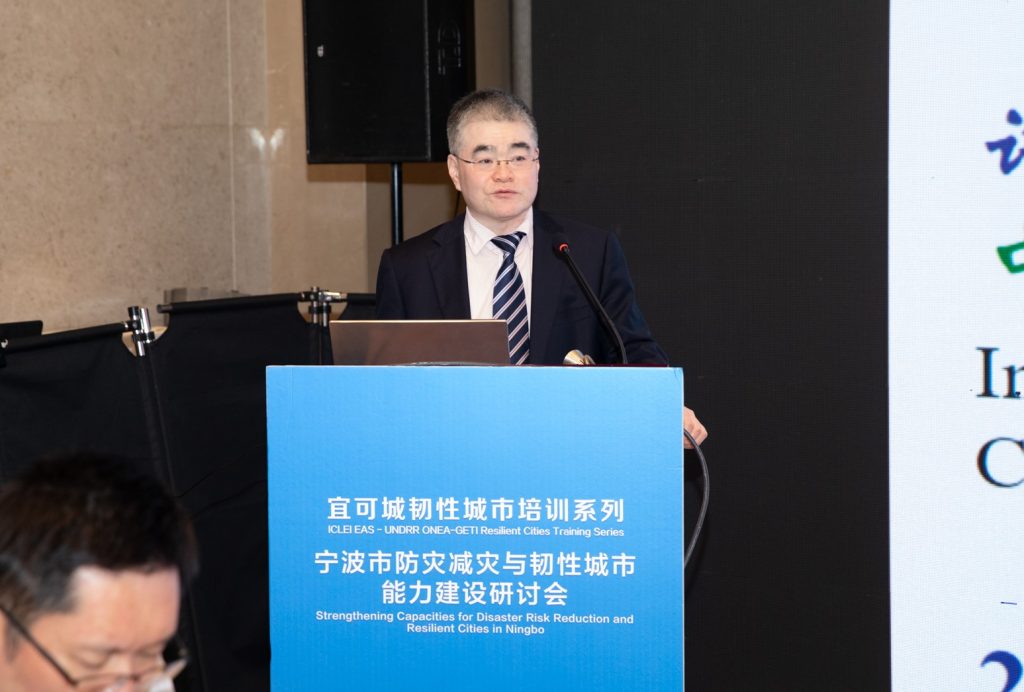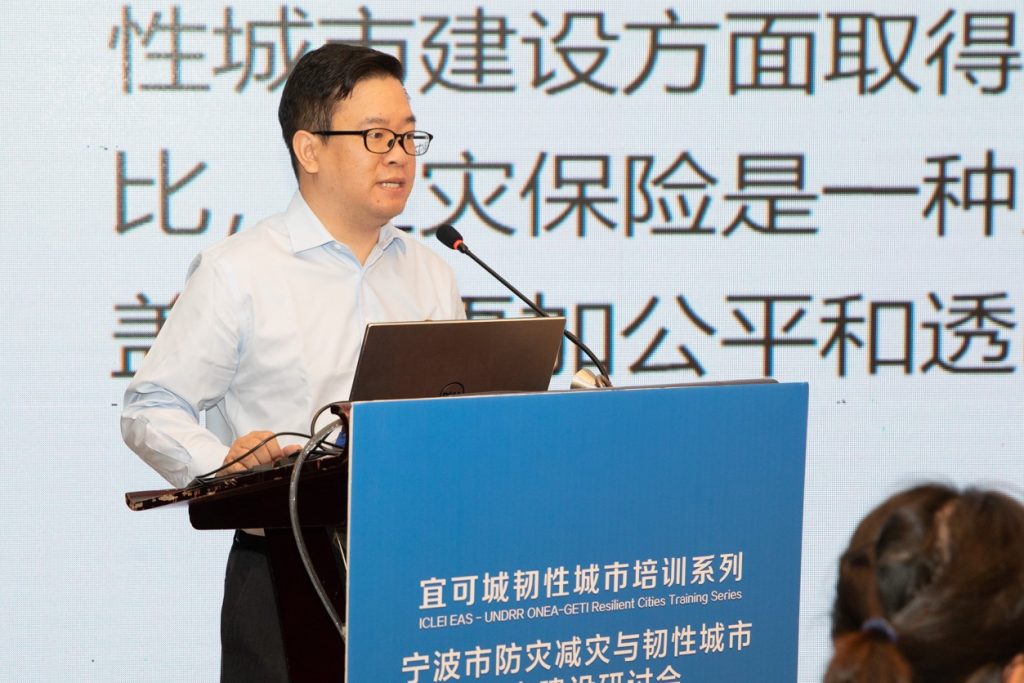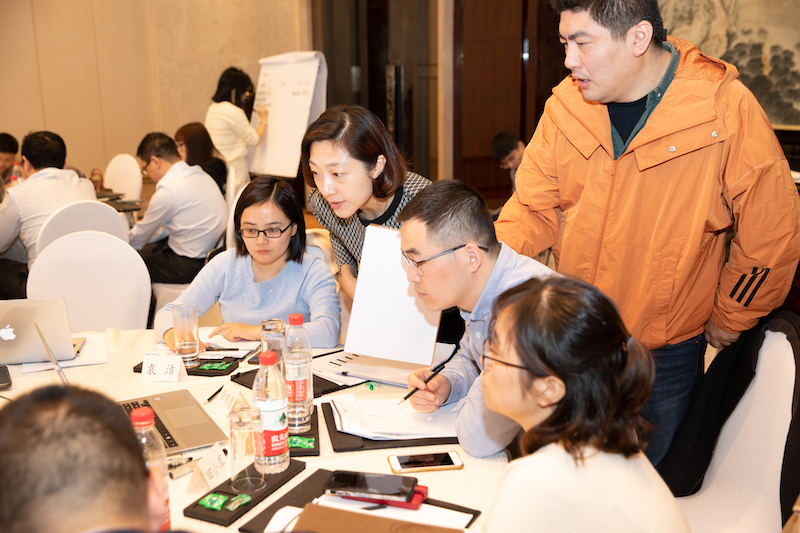Ningbo gears up to strengthen capacities for disaster risk reduction and resilient cities
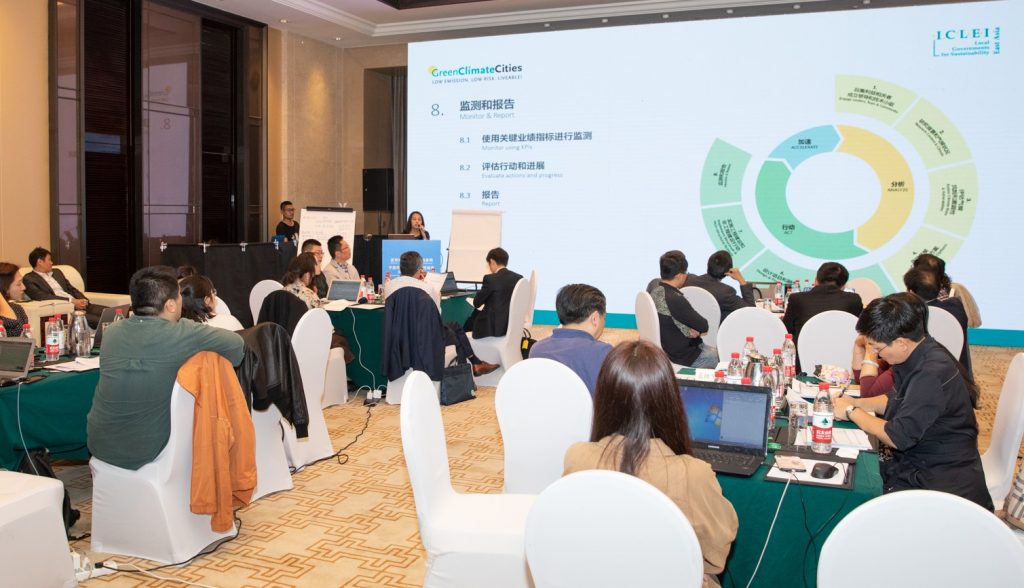
On 31 October 2019, the two-day training “Strengthening Capacities for Disaster Risk Reduction and Resilient Cities in Ningbo” was co-organized by ICLEI East Asia and UNDRR ONEA-GETI, gathering leaders and principal officials from various departments including emergency management, development and reform, finance, public security, transport, housing, and water resources within the Government of Ningbo Municipality, as well as representatives from the insurance, consulting, and real estate sector.
Located on the southeast coast of China, Ningbo is one of the oldest cities in the country. Its port, established back in the 8th century, was known as one of the three major seaports for foreign trade on the Silk Road during the Tang and Song Dynasties. Following the merge with the neighboring port of Zhoushan in 2006, the Ningbo-Zhoushan Port became the busiest seaport in the world in terms of cargo tonnage.
|
|
Power Typhoon Fitow brought persistent and heavy rainfall to Zhejiang province after it made landfall in Fujian Province in 2013, breaking the rainfall records of several counties and districts in the province. In particular, rainfall peaked at 803 mm in Yuyao, which flooded 70% of the town with up to 3 meters of water – the worst in a century for the city. The tremendous damages Fitow caused made Ningbo realize the necessity and urgency of enhancing its capacity in disaster prevention, mitigation, and urban resilience. Since then, Ningbo has placed extra effort in its sponge city development as one of the national pilots.
To support Northeast Asian cities in developing and implementing integrated climate adaptation and disaster risk reduction master plans, the ICLEI East Asia Secretariat and the United Nations Office for Disaster Risk Reduction Office for Northeast Asia and Global Education and Training Institute (UNDRR ONEA-GETI) are jointly delivering training for 4 selected in China from 2019 to 2020, with the first one taking place in Ningbo.
|
|
|
“Climate change adaptation is similarly important as mitigation. While the benefits of mitigation present themselves only after decades, adaptation measures can directly reduce vulnerabilities to climate change effects” said Professor Yinlon Xu of the Chinese Academy of Agricultural Sciences, as he highlighted the importance of urban adaptation goal settings and pathways. He believes that increasing urban resilience is the most efficient way to reduce the negative impacts of natural disasters and extreme weather.
Bo Zheng, Assistant General Manager of PICC’s Department of Property Insurance, shared the catastrophic insurance mechanism of Ningbo, which was developed in November 2014 as the second pilot in the country after Shenzhen. The catastrophe insurance mechanism ensures justice and equity during disaster relief processes, and has, therefore, significantly reduced pressure on the municipal government. In fact, 83.7% of the refugee citizens have reported positive feedback on the system according to a third-party assessment evaluation.
The two-day training workshop comprised interactive sessions in a setting where participants from the Government of Ningbo Municipality were guided for lively discussions amongst themselves and practiced applying UNDRR’s Ten Essentials for Making Cities Resilient scorecard and ICLEI’s GreenClimateCities methodology to examine local situations with the support of experts.
Ningbo scored 504 out of 590 on UNDRR’s scorecard, which is structured around 10 essentials for making cities resilient. While further reliability verification is still needed, the result of the preliminary assessment carried out during the workshop reflects the city’s role as a front-runner in the field of emergency management in China.
Lower scores appeared in private sector engagement, non-domestic insurance coverage, identification of transboundary critical environmental assets, and employee engagement and communication channels.
|
|
A set of objectives and corresponding actions in overall coordination and management, multi-stakeholders engagement, infrastructure, and advancement of monitoring and early warning systems were then set by the participants based on the result of the preliminary assessment. They have also agreed that the most urgent need and low-hanging fruits in building a resilient city are the improvements of public awareness of hazards and disaster risks and response-preparedness skills.
Through the training, participants have widened their understanding of the topics of urban resilience, hazard, risks, climate change adaptation, and their relevant actions. More importantly, the scorecard exercise has also allowed the city officials to re-assess Ningbo’s strengths and weaknesses in urban resilience and disaster risk reduction, and re-think each bureau’s roles and responsibilities, and the importance of horizontal cooperation between sectors.
Comments and suggestions on the training from the participants include 1) the need to receive a more detailed explanation of related terminology and concepts; 2) further quantitative analysis of the current status and cost-benefit analysis of potential actions; 3) a more flexible schedule for the learning process and discussions; 4) a wider range of engagement with other stakeholders such as NGOs, academia, etc.; and 5) further localization of the scorecard in the Chinese context.
In addition, the participants have also expressed strong interest in learning about advanced and/or successful actions and cases of resilient cities in other countries, and potential actions for air quality improvement, natural buffers, and ecosystem services in the future.
Under the framework of the training series, three more workshops will be conducted in Chengdu, Zhuhai, and Chongqing in the first quarter of 2020.


